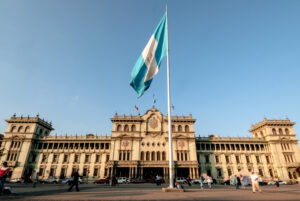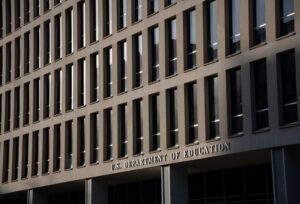Robert F. Kennedy Human Rights is deeply concerned about recent reports of attacks and human rights violations by Moroccan authorities against Sahrawi human rights defender Sultana Khaya, as well as the retaliation that the Sahrawi activist and 2008 Robert F. Kennedy Human Rights Award laureate, Aminatou Haidar, faces for her activism.
On Nov. 15, the Sahrawi Organ Against Moroccan Occupation (ISACOM) denounced Moroccan police forces’ looting of Khaya’s home at 5:40 am, the verbal harassment of her and her family, and the rape of her and her sister while her mother was present. This comes after reports that Moroccan security forces assaulted and injected Khaya with an unknown substance on Nov. 8 that left Khaya physically ill.
These recent incidents are not the first time that Khaya faced attacks from Moroccan security forces. Khaya has been arbitrarily and unlawfully confined under a de facto house arrest since November 2020, as Moroccan security forces have kept “a near-constant heavy presence” outside her home without an official warrant or charges. Khaya has been vocal and active in calling for Sahrawi self-determination, is the president of the League for the Defense of Human Rights and against the Plunder of Natural Resources in Boujdour, and is a member of ISACOM.
Haidar, Chairperson of ISACOM, and colleagues attempted to visit Khaya at her home in Boujdour on Nov. 10, but Moroccan police stopped them at a checkpoint and prevented them from leaving El Aaiún. ISACOM released a video of the encounter that same day, where Haidar spoke against the Moroccan occupation. In response to the video, the General Secretariat of the Moroccan Human Rights and Anti-Corruption Organization filed a complaint to the chief public prosecutor of the Rabat Court of Cassation to investigate Haidar. The complaint refers to the video, states that Haidar has been making separatist claims targeting the “territorial integrity of the kingdom,” and called on the prosecutor to take judicial measures against Haidar to protect public order. Such a reprisal violates international human rights standards on the right to expression and hold opinions, as enshrined in the International Covenant on Civil and Political Rights (ICCPR), to which Morocco is legally bound to.
The United Nations Office of the High Commissioner of Human Rights has expressed concern over “undue restrictions” on the rights to freedom of expression, peaceful assembly, and association in Western Sahara. Together with Amnesty International USA, Robert F. Kennedy Human Rights called on the United Nations Security Council (UNSC) in October 2021 to add a human rights monitoring component to the peacekeeping UN Mission for the Referendum in Western Sahara (MINURSO) to ensure accountability for rights violations committed in the territory. However, the UNSC renewed the mandate without a mechanism, allowing impunity for human rights violations to grow.
Today, we urge the Moroccan government to end the de facto house arrest of Khaya, and ensure that authorities comply with international rights standards on freedom of movement, association, and expression. The UN High Commissioner on Human Rights should conduct a visit to Western Sahara to investigate violations of human rights as soon as possible, including the criminal sexual assault of Sultana Khaya and her sister. We also call on the UNSC to fix the long absence of a human rights mechanism in MINURSO to strengthen the protection of human rights in the territory.



